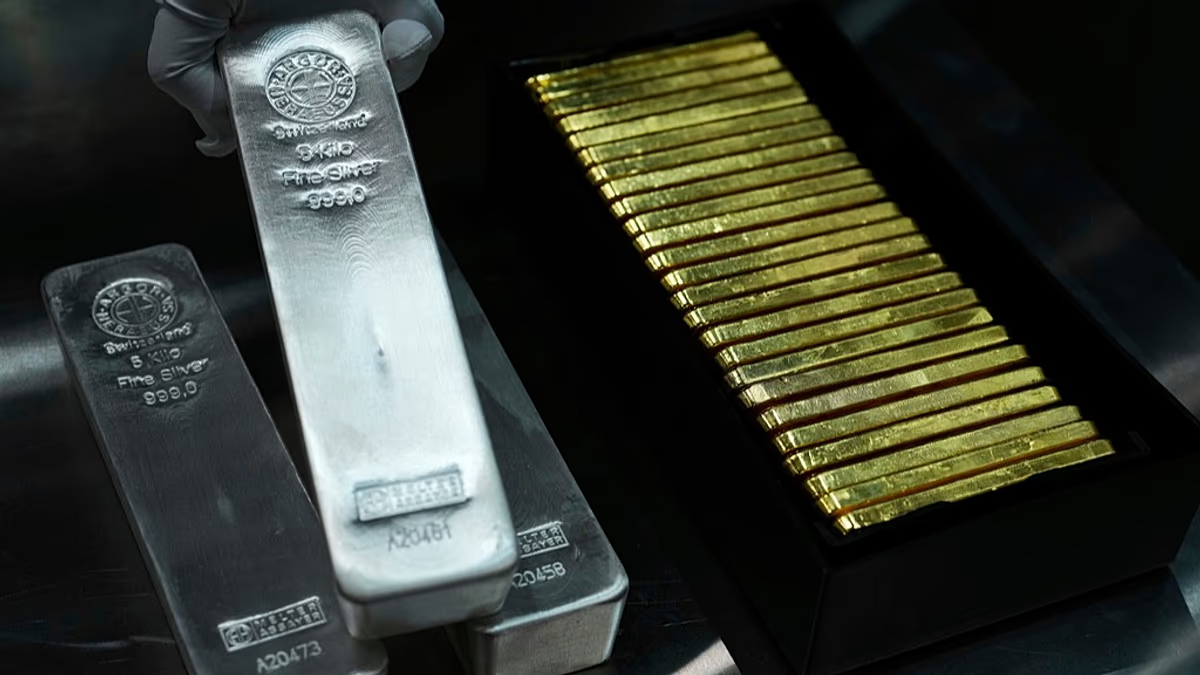Trump’s Fed pick sparks brutal gold and silver sell-off
Published on
Gold and silver prices extended last week’s dramatic sell-off on Monday, as investors continued to digest the implications of President Donald Trump’s announcement of Kevin Warsh as the next chair of the US Federal Reserve.
The move has fuelled expectations of a more government pressure on the Fed and prompted a sharp reassessment of positions across precious metals.
Spot gold fell as much as 10% in early trading, while silver plunged up to 16%, following Friday’s rout that marked the largest intraday decline on record for the white metal.
The scale and speed of the move underscored how vulnerable the market had become after months of aggressive buying driven by geopolitical tension and bets on looser US monetary policy.
“The sharp selloff on Friday followed news that US President Donald Trump intends to nominate Kevin Warsh as the next Federal Reserve chair – a development that boosted the US dollar and reinforced expectations of a more hawkish policy stance,” said Ewa Manthey, commodities strategist at ING, and Warren Patterson, head of commodities strategy.
“While a correction was overdue after the intense rally, the scale of Friday’s decline far exceeded most expectations.”
Why the Fed matters for gold
Gold and silver are particularly sensitive to US interest-rate expectations.
Higher rates increase the opportunity cost of holding non-yielding assets such as precious metals, while a stronger dollar makes them more expensive for overseas buyers.
Warsh, a former Fed governor, has voice sentiments supportive of Trump’s vision for the Fed, including regular rate cuts.
That reassessment has been swift. Investor caution has been evident in exchange-traded funds, with silver holdings falling for a seventh consecutive session to their lowest level since November 2025.
Futures data also show speculators cutting back sharply on bullish bets, signalling a broader retreat from the sector.
“CFTC positioning shows a cooling in speculative interest across precious metals,” the ING report continued.
“Managed money net longs in COMEX gold fell by 17,741 lots last week… Speculators also cut net longs in silver… taking positioning to its lowest since February 2024.”
Margins rise, volatility bites
Market stress has been amplified by mechanical factors.
CME Group is set to raise margin requirements on COMEX gold and silver futures after last week’s historic swings, forcing traders to post more collateral or reduce exposure.
Such moves tend to accelerate sell-offs, particularly in heavily leveraged markets.
Attention is now turning to Asia, where Chinese investors have historically provided support during price dips. However, with volatility elevated and the Lunar New Year approaching, participation may be more cautious than usual.
“With volatility spiking and the Lunar New Year approaching, traders are likely to pare back positions and reduce risk,” the ING analysts said.
“Price direction in the near term will hinge on the extent of dip-buying from Chinese investors following Friday’s retreat.”
Outlook remains fragile
For now, the precious metals market remains at the mercy of macro forces, with little clarity on how quickly sentiment will stabilise.
Investors are watching US data closely for clues on real interest rates and the dollar’s next move, both of which will be shaped by expectations around the Fed’s future direction.
“Overall, volatility across precious metals is likely to remain elevated in the near term,” Manthey and Patterson said.
“For gold and silver, macro uncertainty, real rate expectations, and USD direction will continue to dominate sentiment,” the report concluded.
